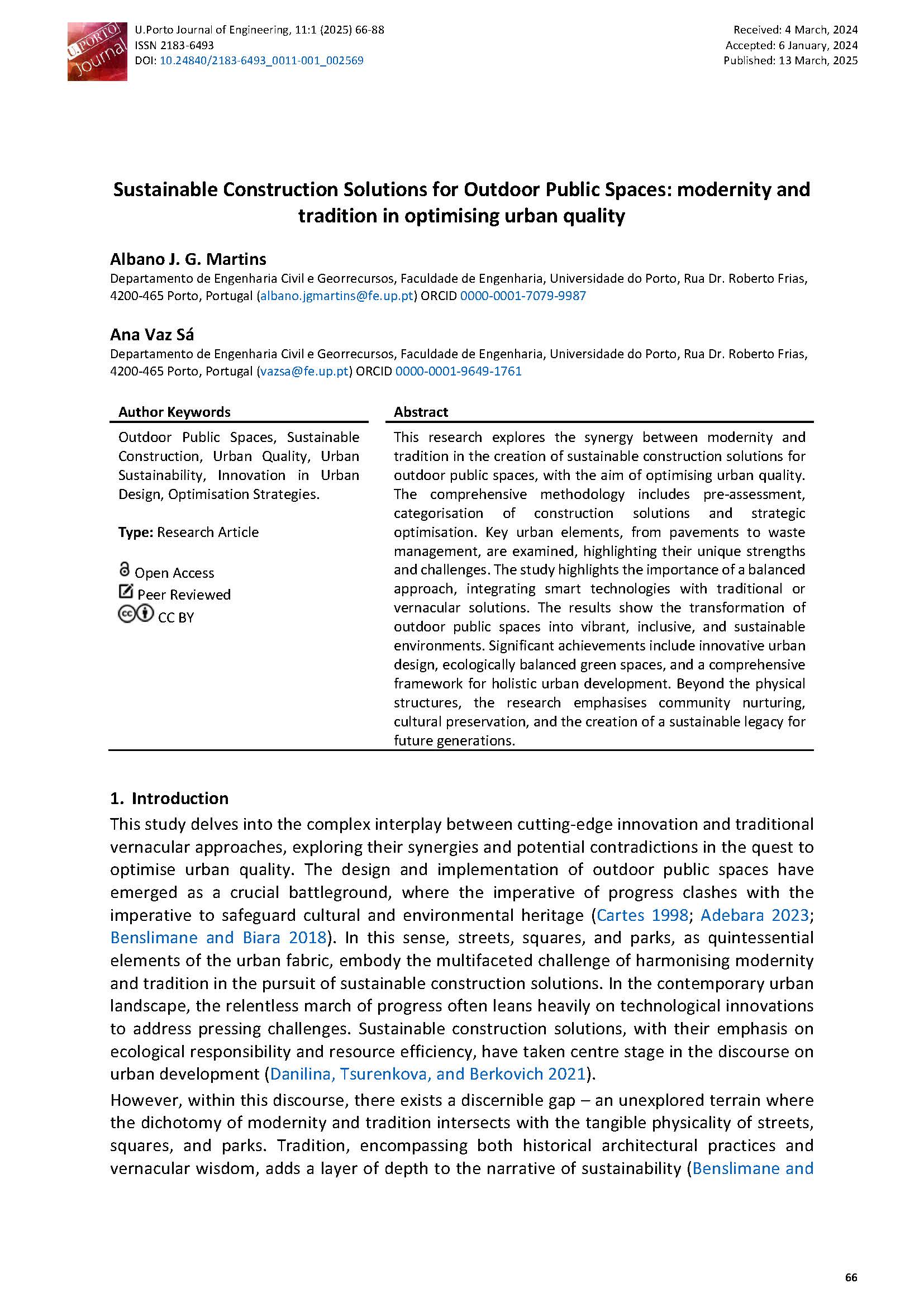Sustainable construction solutions for outdoor public spaces: modernity and tradition in optimising urban quality
Main Article Content
Abstract
This research explores the synergy between modernity and tradition in the creation of sustainable construction solutions for outdoor public spaces, with the aim of optimising urban quality. The comprehensive methodology includes pre-assessment, categorisation of construction solutions and strategic optimisation. Key urban elements, from pavements to waste management, are examined, highlighting their unique strengths and challenges. The study highlights the importance of a balanced approach, integrating smart technologies with traditional or vernacular solutions. The results show the transformation of outdoor public spaces into vibrant, inclusive, and sustainable environments. Significant achievements include innovative urban design, ecologically balanced green spaces, and a comprehensive framework for holistic urban development. Beyond the physical structures, the research emphasises community nurturing, cultural preservation, and the creation of a sustainable legacy for future generations.
Downloads
Article Details

This work is licensed under a Creative Commons Attribution 4.0 International License.
Authors who publish with this journal agree to the following terms:
- Authors retain copyright and grant the journal right of first publication with the work simultaneously licensed under a Creative Commons Attribution License that allows others to share the work with an acknowledgement of the work's authorship and initial publication in this journal.
- Authors grant the journal the rights to provide the article in all forms and media so the article can be used on the latest technology even after publication and ensure its long-term preservation.
- Authors are able to enter into separate, additional contractual arrangements for the non-exclusive distribution of the journal's published version of the work (e.g., post it to an institutional repository or publish it in a book), with an acknowledgement of its initial publication in this journal.
- Authors are permitted and encouraged to post their work online (e.g., in institutional repositories or on their website) prior to and during the submission process, as it can lead to productive exchanges, as well as earlier and greater citation of published work (See The Effect of Open Access).

